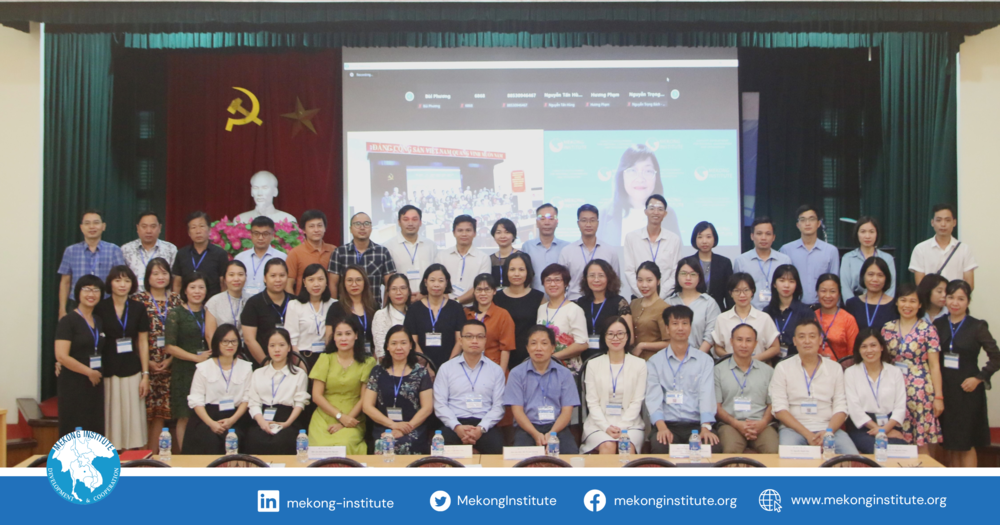Hanoi, August 30, 2023 – To help improve the flow and distribution of safe food in and out of Viet Nam, the Mekong Institute (MI) and the Food Industries Research Institute (FIRI) of the country’s Ministry of Industry and Trade brought food stakeholders together in a training-workshop on Traceability for Food Safety and Competitiveness of Viet Nam Agri-Food Enterprises. The workshop, which sought to enhance participants’ knowledge of food traceability systems, was attended by 51 on-site and 40 online participants, representing agri-food enterprises, FIRI, and other related government offices.
In his welcome remarks, FIRI Director, Assoc. Prof. Dr. Vu Nguyen Thanh recognized that food production is a key sector of the Vietnamese economy. He said that, for this sector to continue thriving, producers and suppliers should keep in mind that “consumers are always concerned about safety and quality, while processing facilities care about the quality and origin of raw materials.” To gain consumer trust, these critical factors must be considered at all times in each stage of the supply chain. “The issues are all related to food traceability, a relatively new concept in Viet Nam,” Dr. Thanh said.
Ms. Maria Theresa Medialdia, MI Agricultural Development and Commercialization Department Director, expressed similar views in her opening remarks, stating that import markets now require an origin tracking system for imported products, and well-functioning traceability systems. These systems improve food safety control by allowing relevant actors to verify whether products meet market and regulatory requirements and respond swiftly in the event of food safety breaches. She emphasized that traceability has emerged as a fundamental concept that underpins the safety, quality, and transparency of the entire food supply chain in today’s globalized and intricate food industry.
The workshop is a proactive response to the tightening requirements of Viet Nam’s export markets, including P. R. China and the European Union. It is aimed at strengthening the competitiveness of the country’s agri-food enterprises through a better understanding of and improved capacity to meet emerging traceability requirements of domestic and foreign markets.
Food traceability involves tracking the movement of food products and documenting useful data at every stage of the supply chain to ensure food safety, quality control, and regulation compliance. Implementing traceability requires the adoption of relevant technologies and new production methods and practices.
The event served as a platform for SMEs to articulate challenges in tracking food along the value chain and improve their understanding of the role of traceability in food safety assurance and market access. Participants learned about traceability certification and management, documentation standards, and best practices on record-keeping, among other topics that resource persons from FIRI, the National Authority for Agro-Forestry-Fishery Quality, Processing and Market Development, and the National Numbering and Barcode Center facilitated.
The workshop is part of MI’s Promoting Safe Food for Everyone or PROSAFE Project which is made possible through the support of the New Zealand Aid Programme.








